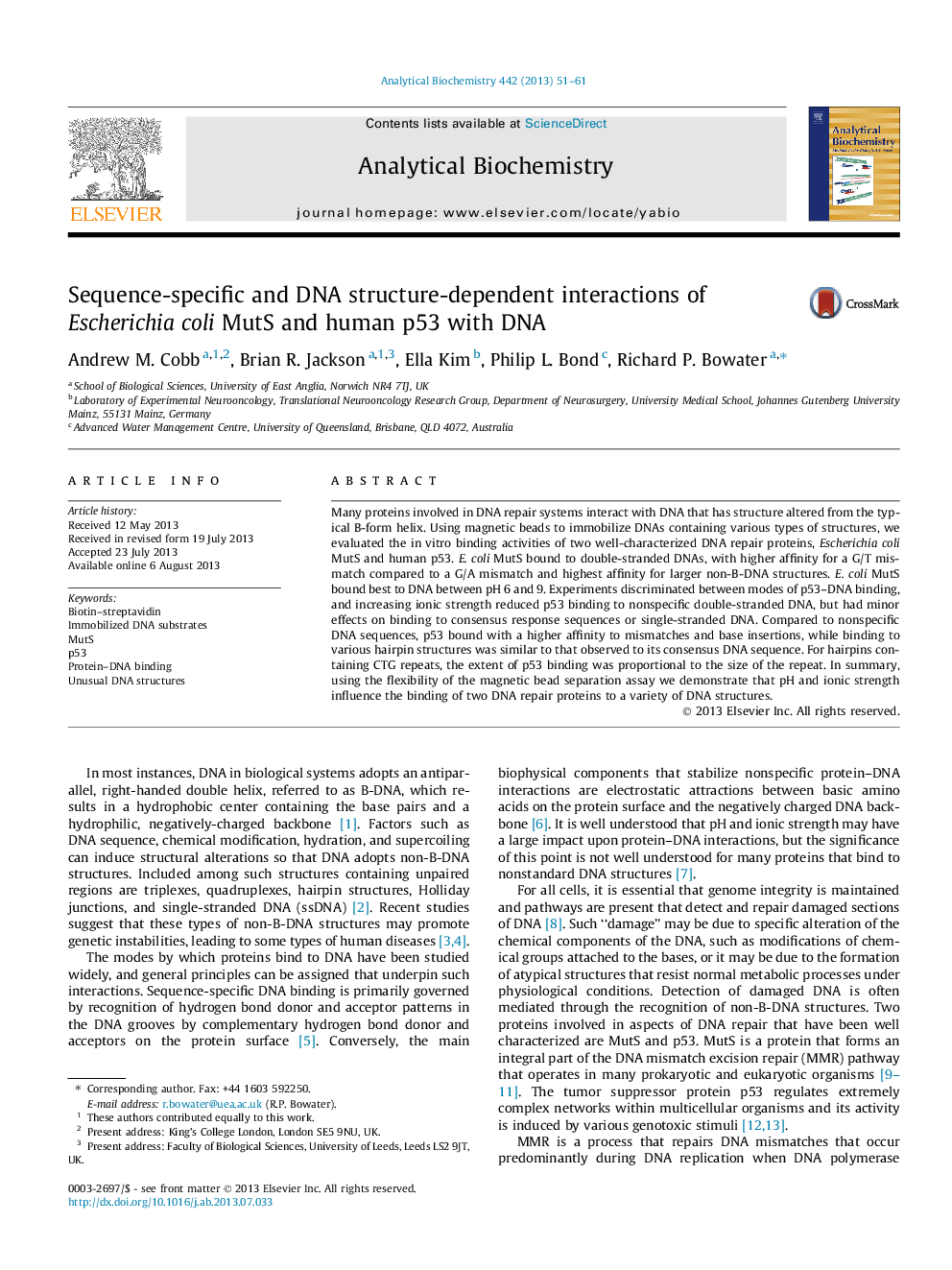| Article ID | Journal | Published Year | Pages | File Type |
|---|---|---|---|---|
| 10533029 | Analytical Biochemistry | 2013 | 11 Pages |
Abstract
Many proteins involved in DNA repair systems interact with DNA that has structure altered from the typical B-form helix. Using magnetic beads to immobilize DNAs containing various types of structures, we evaluated the in vitro binding activities of two well-characterized DNA repair proteins, Escherichia coli MutS and human p53. E. coli MutS bound to double-stranded DNAs, with higher affinity for a G/T mismatch compared to a G/A mismatch and highest affinity for larger non-B-DNA structures. E. coli MutS bound best to DNA between pH 6 and 9. Experiments discriminated between modes of p53-DNA binding, and increasing ionic strength reduced p53 binding to nonspecific double-stranded DNA, but had minor effects on binding to consensus response sequences or single-stranded DNA. Compared to nonspecific DNA sequences, p53 bound with a higher affinity to mismatches and base insertions, while binding to various hairpin structures was similar to that observed to its consensus DNA sequence. For hairpins containing CTG repeats, the extent of p53 binding was proportional to the size of the repeat. In summary, using the flexibility of the magnetic bead separation assay we demonstrate that pH and ionic strength influence the binding of two DNA repair proteins to a variety of DNA structures.
Related Topics
Physical Sciences and Engineering
Chemistry
Analytical Chemistry
Authors
Andrew M. Cobb, Brian R. Jackson, Ella Kim, Philip L. Bond, Richard P. Bowater,
